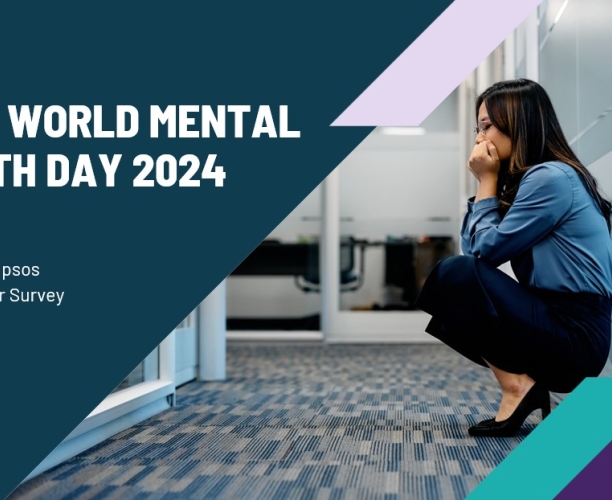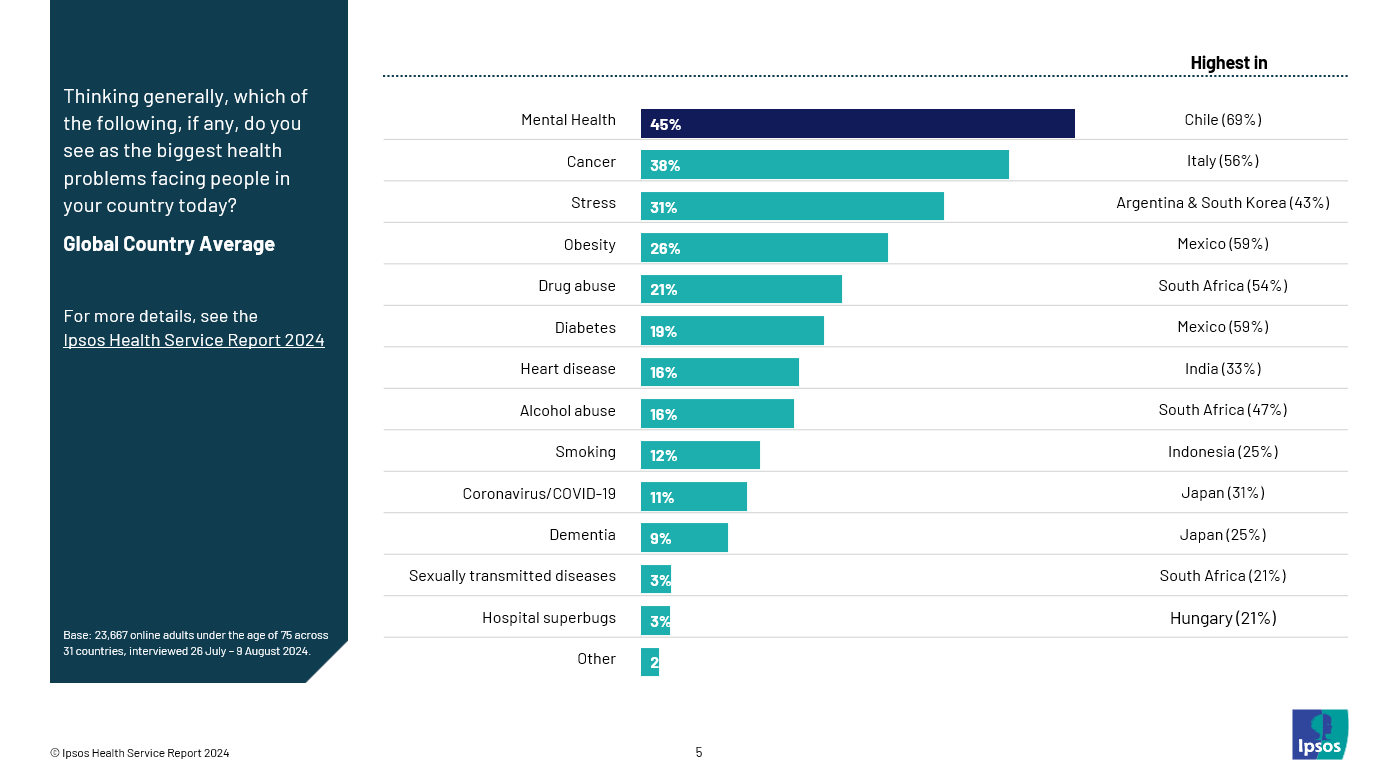

1 in 2 urban Indians have felt stressed to the extent that it impacted their daily life: Ipsos World Mental Health Day Survey 2024
October 10th is the World Mental Health Day. Ipsos global survey on World Mental Health Day 2024 shows 1 in 2 urban Indians (53%) say they have experienced stress to the extent that it impacted their daily life in the last one year. 1 in 4 Indians (22%) have been in such a stressful scenario several times, 31% have experienced stress at least once. Mental health has emerged as a growing concern around the world as per this Ipsos survey conducted in 31 countries.
Interestingly, some markets display a high degree of coping mechanism and have majority of citizens stating that stress has not impacted their work or attending office. This was more pronounced for France (70%), Italy (69%), South Korea (68%), and Spain (67%). Emily in Paris, the series streaming on Netflix had one of the protagonists say that in France we work to live and not live to work, probably that explains the low stress levels of the French people around work.
The report also investigates the incidence of stated depression – a common but serious mood disorder related to mental health. 1 in 4 urban Indians (25%) have felt depressed to the point that they felt sad or hopeless almost every day for a couple of weeks or more in the last one year. This number was higher in Chile (36%), Türkiye (35%) and Hungary (35%).
Amit Adarkar, CEO, Ipsos India said, “The study findings bring to surface the growing concern about mental health world over and in India. In India we have a strong support system of close family ties, support of relatives, friends, who stand by you when the going gets tough. However, one cannot assume that the social fabric itself will insulate us against mental health concerns. Opening our minds to accepting the problem and reaching out to seek help at the right time is important.”
Sanskrati Pathak Sail, Human Resources Development Head, Ipsos India spoke about how workplaces could support employees, “At Ipsos we are committed to supporting our employees through various initiatives, for example our Employee Assistance Program (EAP) and a network of Mental First Aiders. The EAP offers confidential support and resources for employees and their families, while our Mental First Aiders provide initial guidance and then connect colleagues with professional counsellors if needed. These programs clubbed with loads of fun activities/ celebrations foster a supportive and happy environment and empower employees to prioritize their total wellbeing. These programs, along with a variety of engaging activities and celebrations, cultivate a supportive and joyful atmosphere, empowering employees to prioritize their overall well-being.”
Physical Health Vs Mental Health
Globally, 76% people feel that mental health is equally important to physical health while only 13% believe that mental health is more important than physical health. Interestingly, India has the highest % of people (21%) who think mental health is more important than physical health, clearly pointing to the increasing importance being given by Indians to mental health.
Interestingly, Malaysia had at least 63% emphasizing on the importance of both physical and mental health equally.
Notably, more number of citizens around the world (60%) and India (58%) think about their mental health often. Though for some nations their mental health was a big preoccupation. Esp. for South Africa (79%), Colombia (75%), Peru (75%), Brazil (74%), Mexico (73%) and Indonesia (71%). The market most chilled and has never thought about mental health was South Korea (67%).
And how often do citizens think about their physical wellbeing? Well, quite a lot, with 72% of global citizens claiming to be thinking about their physical health often. India had only 1 in 2 (48%) thinking about their physical health regularly and was placed lowest across all markets polled. Some markets showed alarming degree of preoccupation with physical health, especially in South Africa (86%), Indonesia (85%), Peru (85%) and Colombia (84%).
In case of their own physical and mental wellbeing, half (50%) of the urban Indian citizens polled, both their physical and mental health emerged important.
“On the World Mental Health Day, am happy to see that urban Indians are laying importance on both physical and mental wellbeing and not either. And further also not ignoring the importance of good mental health for leading an enriching life. This is a breakthrough for India, where traditionally mental health had some sort of a stigma and was never addressed,” said Gauri Pathak, Group Service Line Leader, Healthcare, Ipsos India.
Another Ipsos Global Survey has shown that Mental Health is the No.1 health issue for global citizens, surpassing cancer, heart disease and other health issues.

Technical Note



